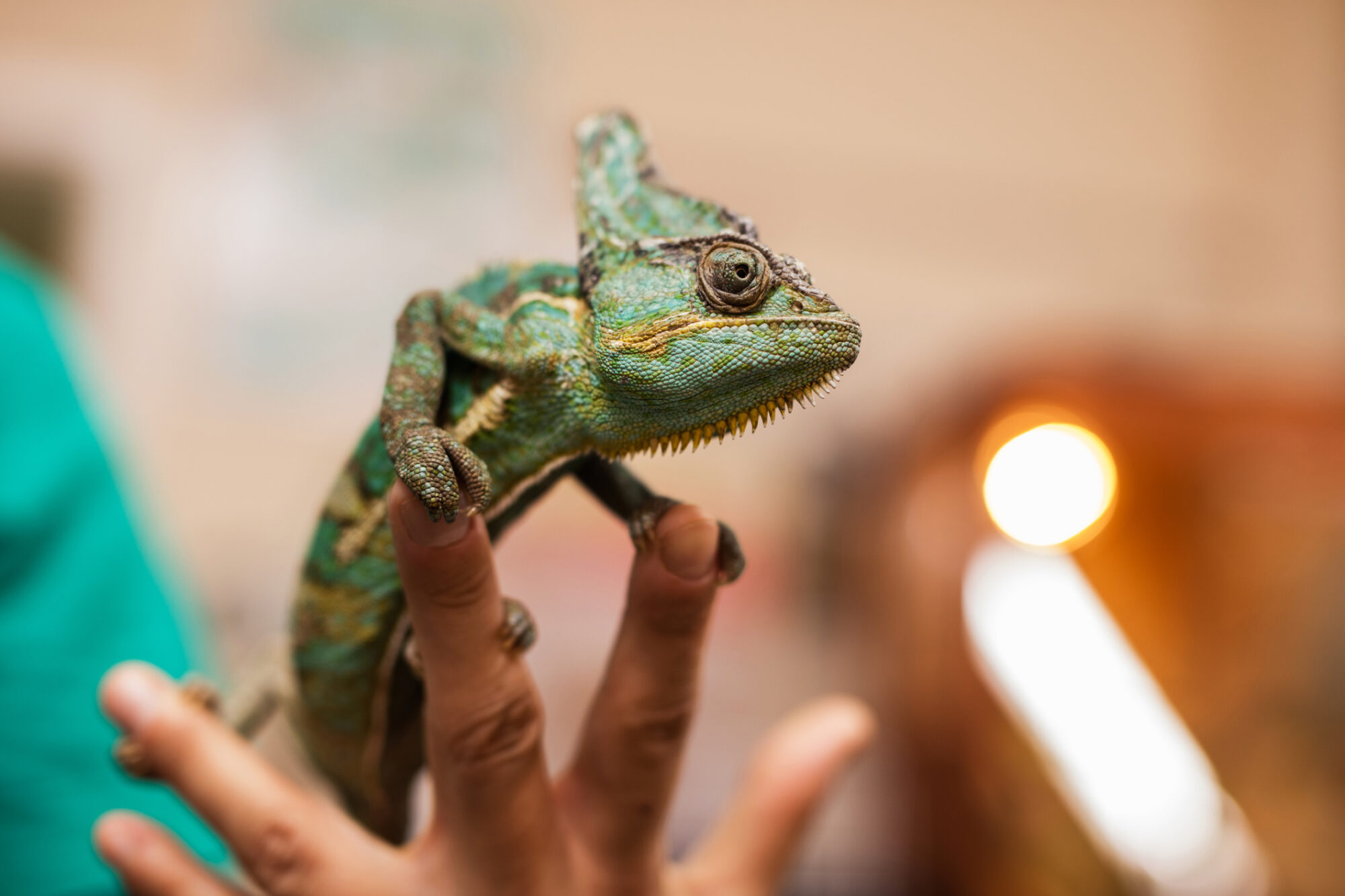Wisdom in Scales: Elderly Reptile Care 101

Reptiles have slithered their way into the hearts of American pet owners, particularly among Gen-Zers and Millennials, and this increased appeal of reptiles as pets means that more attention needs to be paid to elderly reptile care.
At Texas Avian & Exotic Hospital, we know how much your scaly little friends mean to you. In this blog, we’ll help you understand the reptile aging process and how to support the geriatric reptiles in your life.
Understanding the Reptile Aging Process
While some species of reptiles have a relatively short lifespan, others can live for decades. An Eastern box turtle, for example, can live for 25-50 years in captivity, and a ball python’s average lifespan is 15-20 years. No matter where your pet lands on the lifespan spectrum, at some point, your gecko or iguana will fall into the category of geriatric reptiles and need senior reptile veterinary care.
So how do you know when your reptile is entering his or her golden years? Reptiles instinctively try to hide signs of aging to avoid becoming easy prey, but there are physical changes and changes in senior reptile behavior to be on the lookout for, including:
- Overgrown beaks and claws due to decreased activity
- Faded or worn-looking pigmentation
- Slower reflexes
- Weakness
- Basking for longer periods
Optimizing Senior Reptile Health
Reptile medical needs are unique and will change as they age, so it’s important to find a doctor who specializes in reptile veterinary care. For optimal reptile well-being and senior reptile health, practice these reptile wellness tips throughout the life of your pet:
- Prioritize prevention: Stay up to date with routine wellness exams. These visits allow us to get to know your pet, answer your questions, and spot the early warning signs of medical conditions.
- Provide the perfect habitat: Reptiles have specific needs as far as habitat, temperature, humidity, and space for mobility that are critical for reptile well-being at any age and particularly important for geriatric reptiles.
- Make mealtimes matter: A senior reptile diet should include adequate calcium and vitamin D3. You can help geriatric reptiles get the nutrition they need by providing more frequent, smaller meals and cutting their foods into tiny pieces when appropriate.
- Protect against parasites: Intestinal parasites such as hookworms, pinworms, and roundworms are the ones most common in reptiles. Routine reptile veterinary care coupled with fecal tests, deworming, and keeping the enclosure clean are key preventive measures.
- Support healthy immune function: For geriatric reptiles, proper exposure to UVB lighting is more important than ever because it enhances their immune systems, which weaken as they age.
- Prevent injuries: Weaker muscles and bones are part of the reptile aging process and can make your reptile more prone to injury. Prevent falls by adding inclines in your reptile’s enclosure.
With appropriate elderly reptile care, you can enhance your pet’s reptile well-being and optimize his or her senior reptile health. Contact us to schedule your reptile’s checkup or if you’d like more reptile wellness tips.

